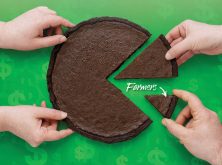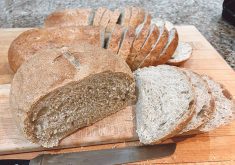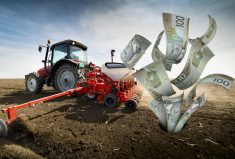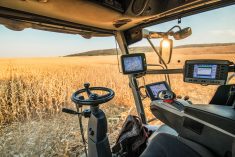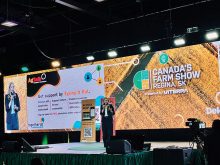Canadian farmland is not immune to the global land grab that’s underway as corporations and countries position themselves for the prospect of future food shortages, the National Farmers Union says.
“We may be on the verge of a new system wherein those who work the land do not own it – a situation that would look familiar and comforting to a 13th century lord,” the NFU says in its report “How a Corporate Farmland Buy-up, Rising Farm Debt, and Agribusiness Financing of Inputs Threaten Family Farms and Food Sovereignty or Serfdom 2.0.”
Read Also

Mazergroup’s Bob Mazer dies
Mazergroup’s Bob Mazer, who helped grow his family’s company into a string of farm equipment dealerships and the main dealer for New Holland machinery in Saskatchewan and Manitoba, died July 6 from cancer.
The report, released June 7, lists 10 examples of agribusiness and investment corporations, buying Canadian farmland. And some companies are doing it with loans from Farm Credit Canada (FCC), as well as with the technical assistance and encouragement of the federal and provincial governments.
The report recommends only residents of a province be able to own farmland in that province.
It also recommends:
Differential land taxes to discourage corporate investment and to encourage family farms;
Assistance for intergeneration land transfer;
Prevent farmland from being used for non-agricultural purposes;
Governments must deal with the farm debt time bomb;
Ban farm input suppliers from tying financing to delivery contracts.
There are two main models for farmland ownership. In one, land is broadly owned by farmers. In the other it’s concentrated in the hands of an elite and those who work the land are sharecroppers and serfs.
“Canada has, until recently, embraced the first model,” NFU president Terry Boehm said in a news release. “But a corporate and investor farmland buy-up means that we may be in the opening stages of a rapid move to the latter model. Unless we act, our land may soon be owned by modern-day lords and barons, with disastrous consequences for all Canadians.”
According to the report, Assiniboia Capital Corporation is the largest farmland investment company in Canada with almost 100,000 acres under its management. FCC is its largest financier.
Other corporate land buy-e rs include Bonnefield Financial, Agcapita and Walton International.
“On the one hand, the idea that the global elite might buy up the planet’s foodland may seem like conspiracy theory,” the report says “But for companies such as Bonnefield and many others, that idea is something else: a business model.”
There’s little data on how much Canadian farmland is owned by investment corporations.
British Columbia, Ontario and New Brunswick have no restriction on who can own farmland in their provinces, including foreign individuals or corporations.
Manitoba, Alberta and Saskatchewan restrict foreign ownership to 20, 10 and 40 acres, respectively.
Prince Edward Island limits corporations to owning no more than 3,000 farmable acres. The Lands Protection Act, which the NFU sites as a model, also restricts ownership by non-Canadians and non-Islanders.
“If corporations or wealthy investors take control of our land and farms, our food systems and ecosystems will be seriously damaged,” the report says.
Canadian farm debt has ballooned to an estimated $64 billion – doubling since 1997 – and is growing by $2.7 billion a year. According to the NFU that’s a reflection of a lack of net farm income.
Heavily indebted farmers have fewer options making corporate investment more appealing, the report says. But the result is less farmer autonomy. [email protected]







